Pick up a book in the Texas Biography Series and you’ll get to know a remarkable Texan. Published by TCU Press and funded by a generous grant from the Houston Endowment, these cutting-edge scholarly works focus on individuals who lacked a quality modern biography exploring their significant role in historic events. Click on any title below to learn more!
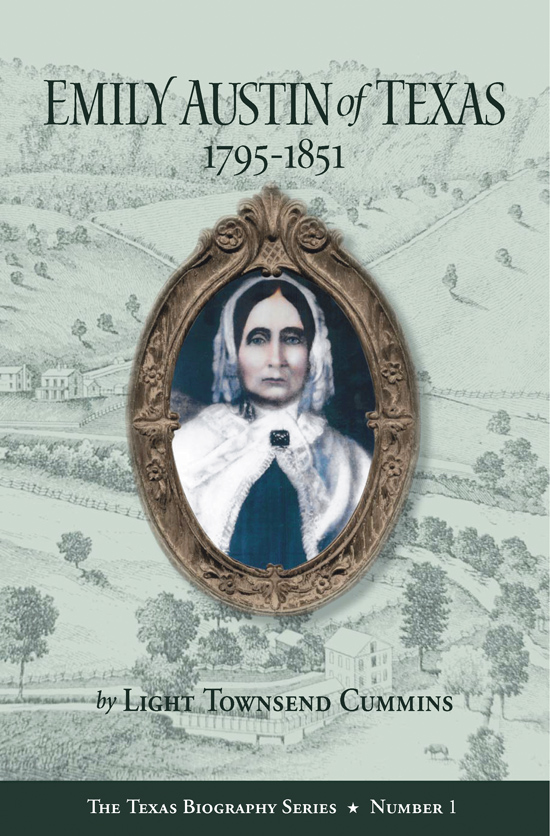 Emily Austin of Texas, 1795-1851
Emily Austin of Texas, 1795-1851
By Light Townsend Cummins
Winner: 2010 Texas State Historical Association Liz Carpenter Award for Research in the History of Women
In this insightful biography, Light Townsend Cummins turns the historical spotlight on Emily Austin, the daughter who followed the trails of the western frontier to Texas, where she saw the burgeoning young colony erupt in revolution, establish a proud republic, and usher in the period of antebellum statehood. Despite her ties to influential family members, including her brother Stephen F. Austin, Emily’s determined spirit allowed her to live on her own terms.
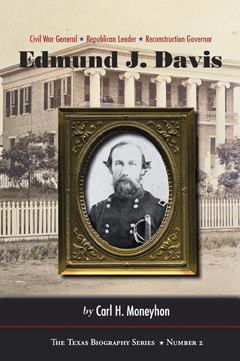 Edmund J. Davis of Texas: Civil War General, Republican Leader, Reconstruction Governor
Edmund J. Davis of Texas: Civil War General, Republican Leader, Reconstruction Governor
By Carl H. Moneyhon
Edmund J. Davis was not only a part of the political elite during the Civil War, but he also opposed secession. He refused to follow most of Texas’ leaders and actively opposed the Confederacy by attempting to bring Texas back to the Union.
After the war, Davis was a leader in reconstructing the state based on true free labor and pursued progressive and egalitarian policies as governor of Texas. Through the entire reconstruction process Davis faced extreme Confederate hostility. After leaving the governor’s mansion an unpopular man and politician, he still remained dedicated to changing Texas.
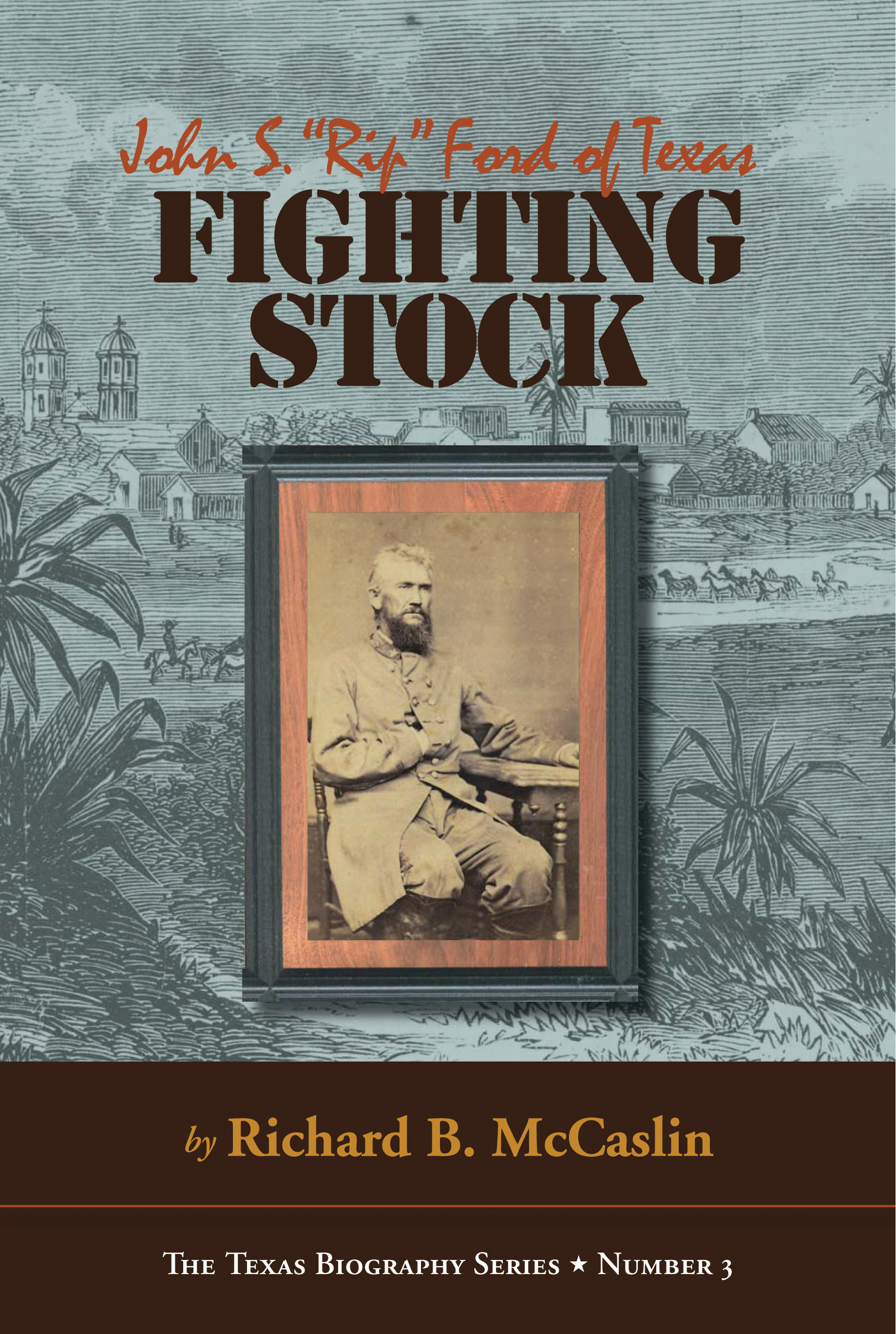 Fighting Stock: John S. “Rip” Ford of Texas
Fighting Stock: John S. “Rip” Ford of Texas
By Richard McCaslin
Winner: 2012 Texas State Historical Association Kate Broocks Bates Award for Historical Research
Author Richard McCaslin reveals Ford as a man spurred on by the legacy of his nation-building grandfathers and his own strong convictions and energy to become a force in shaping Texas as a Southern state before and after the Civil War. Ford’s battles as a Ranger, and as a leader of Texas’ military forces allied with the Confederacy, were only part of his legacy in Texas history. He was also a physician, lawyer, and the editor of several newspapers, and among his many roles in politics and civil service were multiple terms as a state legislator and the mayoralty of Austin and Brownsville. Later in life, he fought to preserve Texas history and wrote his own extensive memoirs. McCaslin’s in-depth historical detail paints a full picture of this famous Texan, a fighter not only on the battlefield, but on the civic and political fields as well.
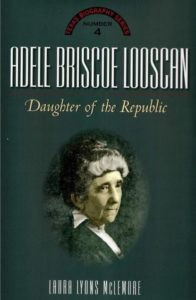 Adele Briscoe Looscan: Daughter of the Republic
Adele Briscoe Looscan: Daughter of the Republic
By Laura Lyons McLemore
Texas historian, author, preservationist, and clubwoman Adele Briscoe Looscan led a remarkable life. Not only did she help found the Daughters of the Republic of Texas, but she became the first woman president of the Texas State Historical Association. She was active in numerous organizations in her hometown of Houston. Looscan long advocated for public education and for a state library, archives, and museum. Her story is valuable and compelling for what it reveals about women and culture in nineteenth- and early twentieth-century Texas and the nature, origins, and shaping of Texas’s modern identity.
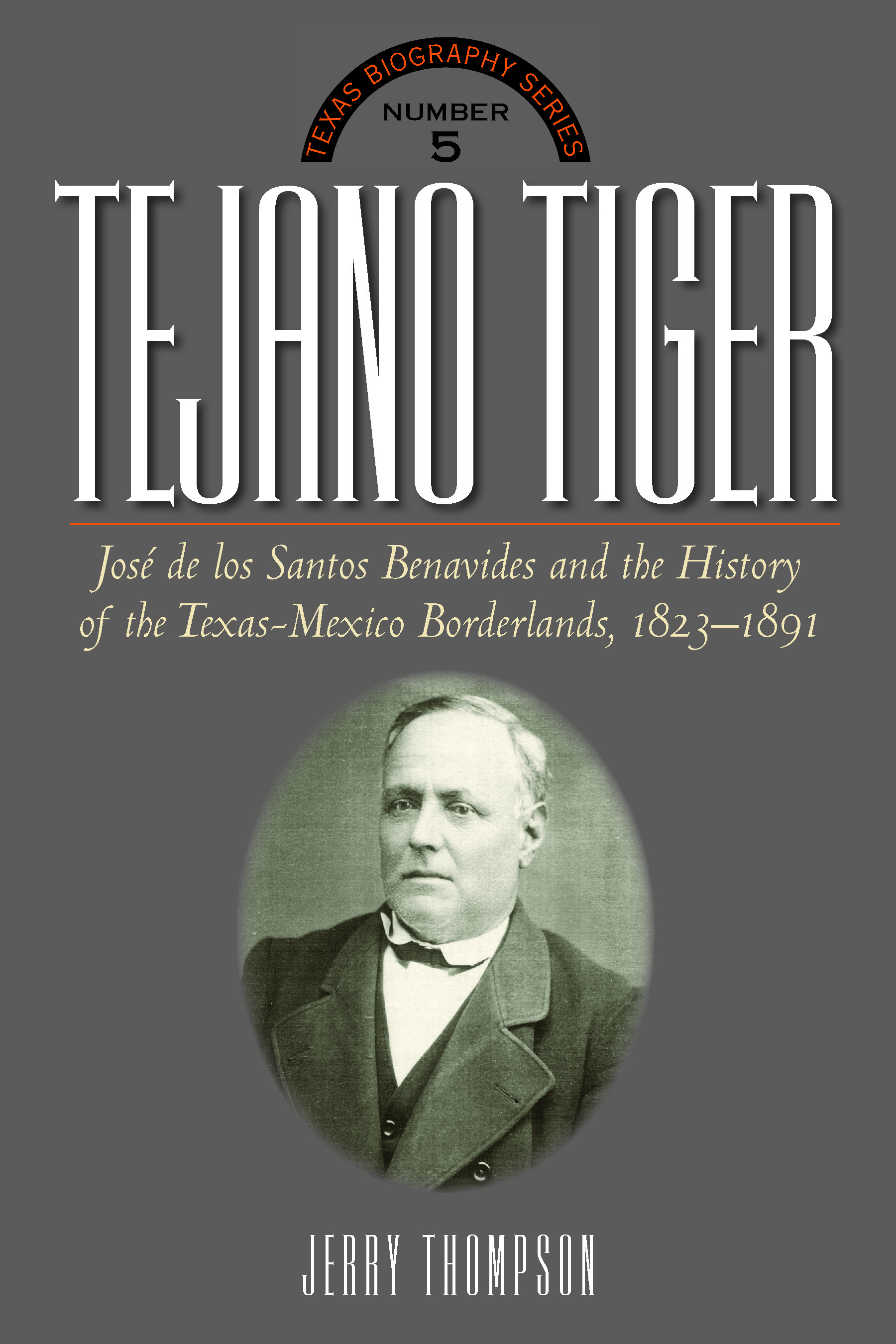
Tejano Tiger: Jose de los Santos Benavides and the Texas-Mexico Borderlands, 1823-1891
by Jerry D. Thompson
Winner: 2017 Tejano Genealogy Society of Austin Tejano Book Award
2018 Texas Institute of Letters’ Ramirez Family Award for the Most Significant Scholarly Book
This is the first in-depth study of Jose de los Santos Benavides, who was undoubtedly the single most important individual in the long and often violent history of Laredo, Texas. It was while the disputed Texas-Mexico borderlands were under Confederate rule that Benevides reached the pinnacle of this military career as the highest-ranking Tejano in the entire Confederate army. In the decades following the Civil War, he became and esteemed political leader, highly respected on both sides of the border. His life was one of endless struggle, difficult adaptation, and enduring perseverance, as well as binational leadership and skilled diplomacy. The niche he carved in the tumultuous transnational history of the Texas-Mexico borderlands seems secure.
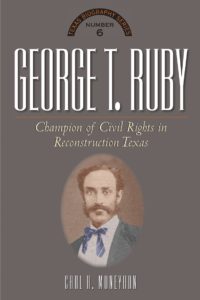
George T. Ruby: Champion of Civil Rights in Reconstruction Texas
by Carl H. Moneyhon
Honorable Mention: 2021 Philosophical Society of Texas Nonfiction Book Prize
George T. Ruby was the most widely known of the first generation of black politicians in Texas, establishing during the Reconstruction both a local and national reputation as a strident advocate of equal rights. He became involved in politics in Texas with the beginning of Congressional Reconstruction in 1867. Ruby used his position to help elect Edmund J. Davis governor in 1869 and also to go to the state senate from Galveston. In the senate he supported the broader agenda of the Republican governor and in return secured support for his own efforts to ensure the protection of basic civil rights for African Americans. At the same time, he established connections with black politicians nationally. Ruby headed the Texas Republican Party in its unsuccessful efforts at retaining power in 1873. Seeing no future for himself when the Democrats returned to power, Ruby moved to Louisiana, where he spent his later years as a newspaper editor and an advocate of the Exodus, a movement that advocated the removal of blacks from the South and their resettlement in the Midwest. From youth to his death in 1882, Ruby showed himself to be a principled politician committed to bettering the place of African Americans in white America.